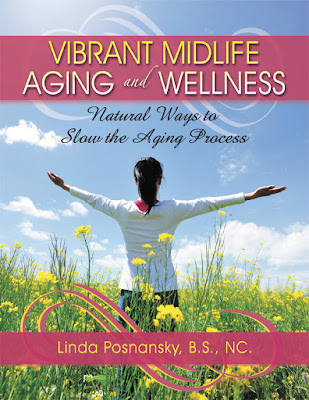 In this series of blogs based on my new book: "Vibrant Midlife Aging and Wellness" I introduced the "5 keys to healthy aging."
In this series of blogs based on my new book: "Vibrant Midlife Aging and Wellness" I introduced the "5 keys to healthy aging." These 5 key health areas need to be optimized if we want to slow the aging process and prevent age-related diseases.
In my last post I discussed that our gut is the foundation of our health, and optimizing its functioning is vital to healthy aging.
Today, I want to discus the importance of having sufficient pancreatic enzymes so that we can adequately digest our foods.
Our small intestine uses pancreatic enzymes to speed the breakdown of protein, carbs and fats so they can be absorbed through the intestinal lining.
However, aging, stress, and a poor diet can reduce our enzyme production. See chart below.
Signs of Low Levels of Pancreatic Enzymes
Fatigue, belching, indigestion excessive fullness 1-3 hours after eating
|
Cramping, pain, soreness on left side under rib cage
|
Gas or bloating 1-4 hours after eating.
|
Constipation or diarrhea, fiber causing constipation
|
Nausea
|
Stool containing undigested food, or foul smelling, greasy, mucus-like, and poorly formed
|
The three main categories of pancreatic enzyme are:
- amylase, for carbohydrate breakdown
- proteases that cleave proteins
- lipases that decompose fats
The pancreas secretes
these enzymes into the small intestine,
but a lack of HCl (see previous post) or depleted beneficial bacteria will lead to a deficiency of
digestive enzymes.
You will have the most trouble digesting fats when suffering from an enzyme deficiency and you will have
difficulty absorbing the fat soluble vitamins A, D, E and K.
Low pancreatic enzymes can also contribute to
food allergies and irritable bowel syndrome.
Pancreatic Enzyme Support
You can support your pancreatic
functioning by eating mineral rich, high fiber foods like leafy greens, seaweed, beans, and avocados.
Raw foods, and bitter foods like parsley, arugula, and dandelion greens are
also recommended.
Fermented vegetables are also high in natural enzymes created by the friendly bacteria, which will support your pancreas.
Additionally, you will need to limit refined carbs (white rice/ bread/crackers/pasta) and sugars.
Stress management is also essential for optimal enzyme production.
*If you experience any of the above symptoms of low pancreatic enzyme production- you can compensate, and relieve your symptoms by taking:
- Digestive enzyme supplements containing protease, lipase, and amylase.
Take 350-1,000 mg. before or with each meal.
- Betaine HCL is also recommended for low stomach acidity. (See previous post)
- Taking a high quality mineral supplement can also support your enzyme production.
- It also might be wise to perform pancreatic enzyme lab testing
My next post will be discussing the importance of beneficial bacteria. It's been suggested that probiotics are the new frontier in health, and are being widely studied for disease prevention, treatment, and overall health maintenance.
To Your Vibrant Health,
Linda
Disclaimer: The information provided in this blog is intended for informational purposes, and is not meant to substitute or conflict with the advice from your physician. It is also not meant for pregnant or nursing women. Do not use this information for diagnosis or treatment of any health problems. Please consult with your physician before attempting any practices in this blog. Information in this blog is general and to the best of my knowledge is true and complete, and is offered with no guarantees on the part of the author. The author disclaims all liability in connection with the use of this blog.
If you find this post helpful, please share it with your friends and family.



